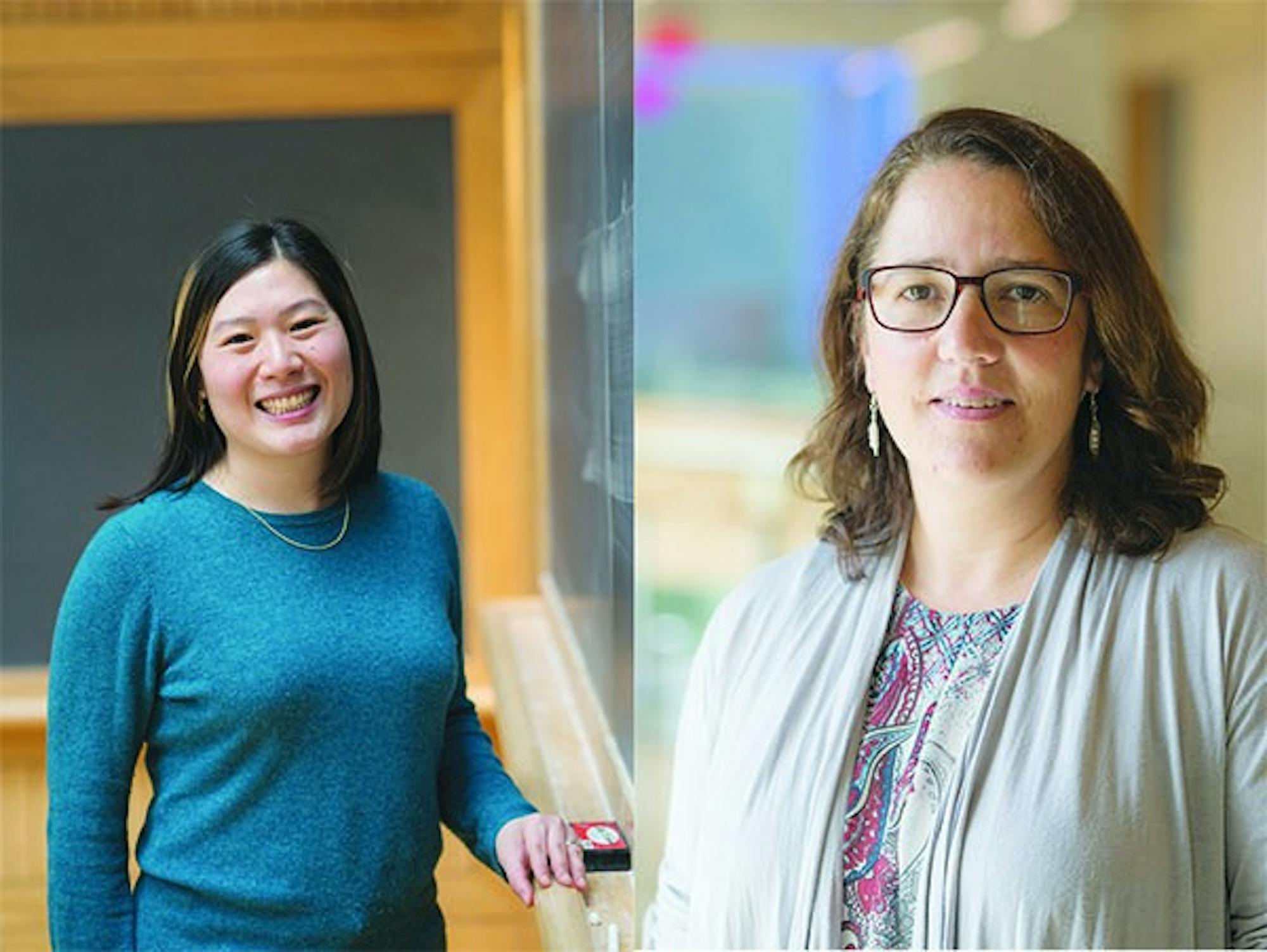Last fall, Dartmouth welcomed 35 new faculty members from a wide variety of academic backgrounds.
Some of the new professors include biology professor Magdalena Bezanilla, Geisel School of Medicine professor Diwakar Pattabiraman, sociology professor Katherine Lin and English professor Nirvana Tanoukhi.
Dean of the faculty of arts and sciences Elizabeth Smith wrote in an email statement that the College is excited to welcome “these talented faculty, whose energy and diverse academic interests will inspire students and add to the intellectual vibrancy of the Dartmouth community.”
Tanoukhi’s research focuses on the everyday life of literature. The teacher-scholar model at Dartmouth incentivized her to accept a teaching position at the College because “teaching feeds [her] research,” she said.
Similarly, Lin said that the unique balance of the teacher-scholar model interested her because she wanted teaching to remain a significant part of her life.
“I think interacting with students is a lot of fun,” Lin said. “It gives me an edge. It keeps [me] a little fresh.”
For Bezanilla, the research interests of biology professors at the College influenced her decision to join the biology department. As a cell biologist, Bezanilla said her research looks at how the molecules inside a plant cell shape and divide it.
Before teaching her first course, Biology 12, “Cell Structure and Function,” this term, Bezanilla said she focused on setting up her lab when she arrived in the fall.
“I wanted to have more colleagues interested in cell biology,” Bezanilla said. “This place is fabulous for that and has made a lot of investment in that area. I think that was the main attraction for me.”
At Geisel, new professors commonly focus on setting up their research lab before moving onto teaching courses, according to Pattabiraman. He said his lab focuses on understanding the mechanisms of tumor progression and metastasis using breast cancer as a model. Although he has not taught any courses yet, he has had the opportunity to work with graduate students through his lab, Pattabiraman added.
“I really like for students [who] work with me to understand both sides of the story,” Pattabiraman said. “I think it’s really important to understand the science … but at the same time keeping in mind that the work we do is ultimately supposed to be used for the clinical application.”
Pattabiraman said he has received support from faculty members who are part of a mentorship committee; newer young faculty members are given the chance to pick their own mentors from this established cohort.
In the sociology department, junior faculty have a writing group that meets once a week that allows them to discuss their research and give each other feedback on their papers, according to Lin.
“We rotate who shares a piece,” she said. “It’s nice to have a deadline … [for which] you have to produce a two-pager on something.”
In addition to the financial resources provided by the College to help her relocate to Hanover, Lin said she took advantage of established social networks at the College to help ease her transition to the town. She used a Facebook group for people associated with the College to learn more about the housing market in the area, Lin said.
Bezanilla added that she received help from her colleagues during her transition in identifying resources for her kids.
“I found the department to be very welcoming,” Bezanilla said. “I think that has been very helpful. I feel like people help me navigate bureaucracy.”
Tanoukhi said she enjoys the ethnic and international diversity of the Dartmouth community, which aids her research on the motivation of people living in a globalized society to continue engaging with literary texts.
Pattabiraman said he looks forward to continuing his research, interacting with students on a more regular basis and eventually collaborating with other researchers.
Now that she is more settled down, Lin said she hopes to continue working on her research and is “looking forward to meeting more students.”
“Some of the most rewarding experiences that I’ve had here have been interactions with students,” she added.
Similarly, Bezanilla hopes to work with more undergraduate and graduate students in her lab, she said.




